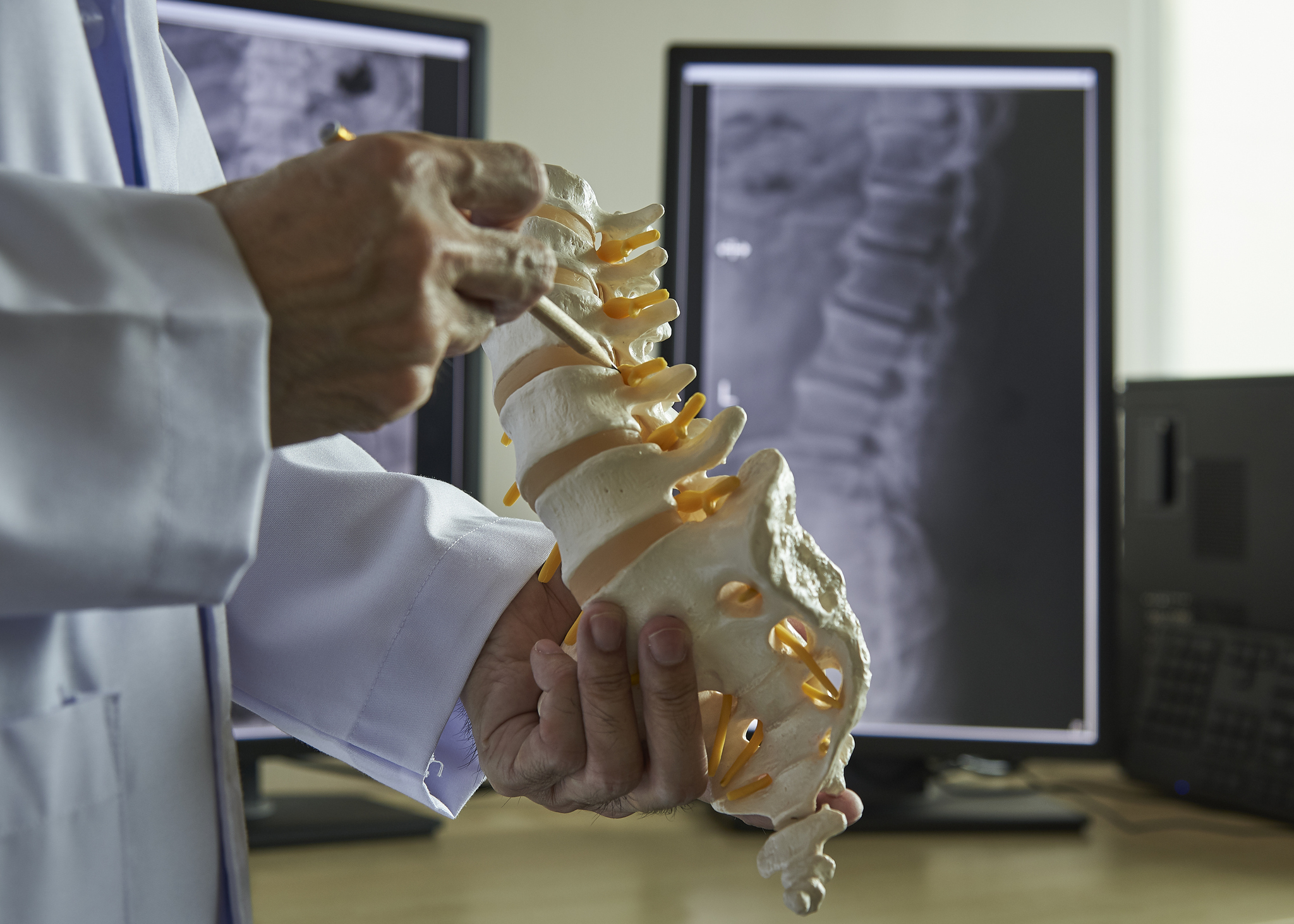Artificial disc replacement is a surgical option that can be used to treat some types of degenerative disc disease. A disc is a pad between the vertebrae of the spinal column. It is round in shape, with a flat top and bottom. Each disc is held in place by ligaments. The elastic-like core of the disc acts as a shock absorber. As people age, their discs dry out, becoming less elastic and looks more like stringy crabmeat. As the disc becomes more dried out, it becomes more prone to injury.
A disc which is injured or breaks down in the lumbar spine can cause pain in the low back and pain can radiate down the legs as well. The patient may have other symptoms including numbness, tingling, and weakness if nerves are being pressed on by the disc. Problems with the cervical discs can cause pain, weakness, numbness and tingling in the neck, shoulder, arm, and hand. In more severe situations with spinal cord compression, there can be problems with coordination, balance difficulties and in rare and severe situations, bowel and bladder control problems. The patient may be diagnosed with a herniated disc or degenerative disc disease. Artificial disc replacement can be a good treatment option in selected patients who suffer from these problems.
Types of Artificial Disc Replacement
There are two types of artificial disc replacement – total disc replacement and disc nucleus replacement. In a disc nucleus replacement procedure, only the center portion of the disc is replaced. Nucleus replacement is experimental and is not currently being performed in the U.S. Neurosurgeons in our practice offer cervical total disc replacement for those patients who meet the criteria needed to benefit from this type of surgery. The entire disc is removed and replaced during a total disc replacement. Artificial discs may be made of a metal, like titanium or cobalt chromium or a combination of both metal and plastic. The FDA approved cervical artificial disc use in the U.S. in 2007.
Lumbar and Cervical Disc Replacement
Disc replacement may benefit patients who have not received relief from pain through non-surgical treatments such as physical therapy or pain management. Benefits of disc replacement may include preservation of motion, reduced stress on other discs, and restoration of pre-degenerative disc height. Disc replacement may be recommended in patients who have not had previous back surgery, do not have spinal deformities (such as scoliosis), do not have joint disease, and have symptoms from one or two discs.
An advantage of disc replacement over spinal fusion is that there is less stress on the remaining cervical vertebrae, and the patient can have greater range of movement. Patients with degeneration affecting more than two discs or segmental instability are generally not a candidate for disc replacement.
Disc replacement surgery is a relatively safe medical procedure when performed by our experienced neurosurgeons. We will determine whether disc replacement is appropriate, based on a complete evaluation of the patient’s symptoms and their diagnosis. The neurosurgeons at Atlanta Brain and Spine Care are very experienced in performing artificial disc replacement surgery. Roger H. Frankel, M.D., and Michele M. Johnson, M.D., Regis Haid, MD, Steven D. Wray, M.D., David Benglis, MD and Joshua Wewel, MD all specialize in artificial disc replacement surgery.


